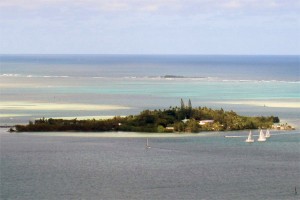Sperm banking coral reefs
A good many years ago on Car Talk, Tom and Ray got around to the part where they ask what the caller does for a living. The woman in question replied that she did field biology, or environmental science – something like that. The hosts asked what that was like. She said it tended to be depressing. On the whole, she felt like all she did was “document the decline”.
I’m sure that caller didn’t invent the concept. But it was the first time I’d heard the depressing state of so many plants, animals and ecosystems summed up in three short words.
Which leads me to a recent news tidbit, courtesy of this article in the New York Times, by Michelle Nijhuis about efforts to establish a sperm bank for coral reefs.
You may well wonder what that has to do with the North Country. Not much – apart from how important healthy oceans are to all life on this planet.
The article caught my eye because some of the work is being done in my home state of Hawaii. And because it sounds quirky and cool. (“Fascinating” as Mr. Spock liked to say.)
Many readers know about seed saving organizations, about sperm banks for human and animal applications and about the ark-like frozen vaults in Norway that store thousands of seeds in case that’s needed some day. (Read more about the Svalbard Global Seed Vault here.)
But a sperm bank for coral? How does that work?
With labs at the Hawaii Institute of Marine Biology in Kaneohe Bay, a reproductive physiologist with the Smithsonian Institution, Dr. Mary Hagedorn, is a pioneer in gathering reproductive material from corals in Hawaii, the Caribbean and Australia. Coral can reproduce asexually or sexually. But sexual reproduction offers more genetic diversity and the best chance to adapt to environmental changes.
Here is a video by Hagedorn on the subject:
Ideally, there would be no worries that coral reefs could be imperiled on a global scale. Unfortunately, according to the NYT article, they are.
If this decline continues, almost all of the world’s reefs will be on their way to oblivion by 2050. An estimated one-fourth of all known marine species have some association with coral reefs; some may be able to survive on seaweed, but not all. This month, researchers at the International Coral Reef Symposium in Cairns, Australia, summed up the situation: “Together, this combination of climate-related stressors represents an unprecedented challenge for the future of coral reefs and to the services they provide to people.”
So, it’s bad news that the need exists. But I’d argue it’s a good move to build some back-up measures.
For marine scientists whose careers depend on coral reefs, Dr. Hagedorn’s collection can be reassuring. “Mary is my insurance policy,” said Greta Aeby, a biologist who works in a dockside laboratory on Coconut Island and studies coral disease throughout the Pacific.
It’s not just marine scientists, or fishermen, or divers who should care about the health of reefs. And a coral reef sperm bank is no easy thing to master.
“Sometimes the next step is getting punched repeatedly in the face,” said Kenneth Storey, a cryopreservation researcher at Carleton University in Ottawa. “This is hard work, hard empirical work. It’s uphill.”
Good going, Dr. Hagedorn and the Reef Recovery Initiative. And good luck to those who toil to remedy these predicaments.
Tags: climate change, coral reefs, Dr. Mary Hagedorn, environment, Hawaii Institute of Marine Biology, Oceans, photolead, Reef Recovery Initiatiive, science, sperm banks









This is great news! All we need is a healthy planet somewhere with just the right conditions, and we can jump-start its marine life!
And here on earth, we can build a coral museum, with a controlled environment, while the real oceans die.
Face it. Long term, we’re toast!
Many of the world’s philosophers, both past and present, see self preservation as the basis of morality.
I believe this is true if you are willing to realize self preservation includes preserving all that is needed for you to live and preserving the environment we need to survive ends up being a form of self preservation.
Oh yeah, we’re definitely toast, Walker. And while this may sound cynical, it’ll be the best thing that ever happened to the planet. And while this may sound optimistic, life will go on without us.
The comments here aren’t cynical, they’re depressing.